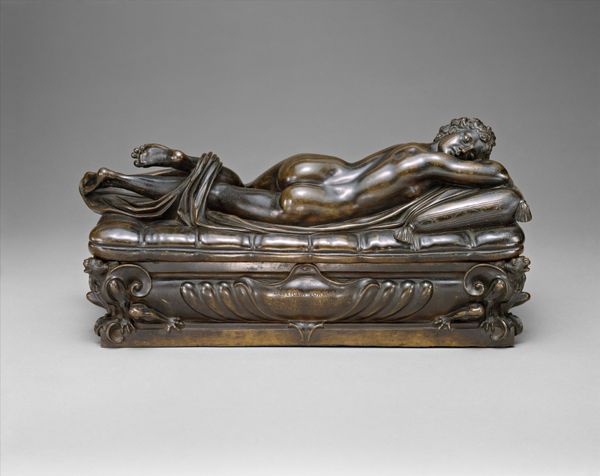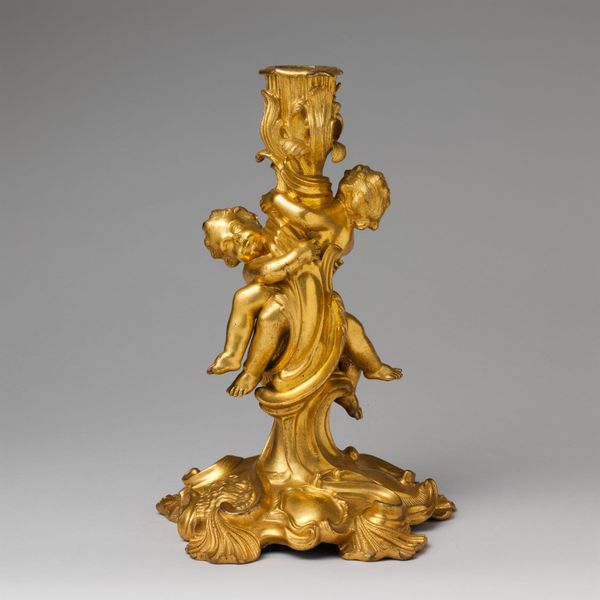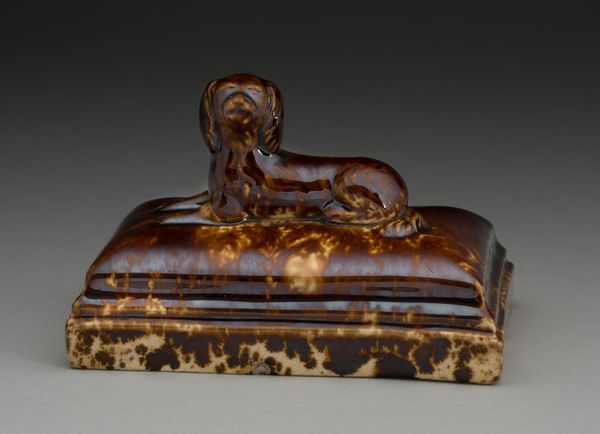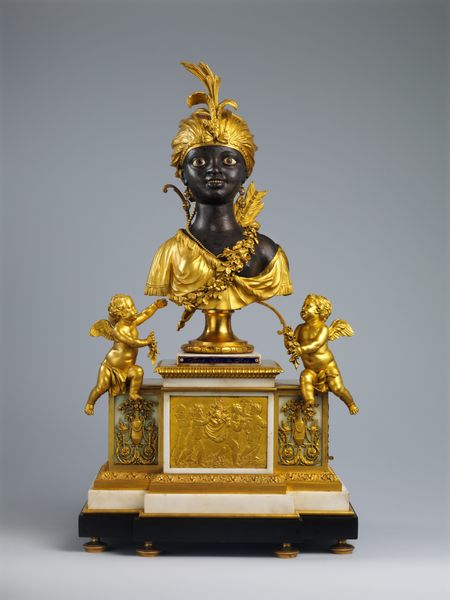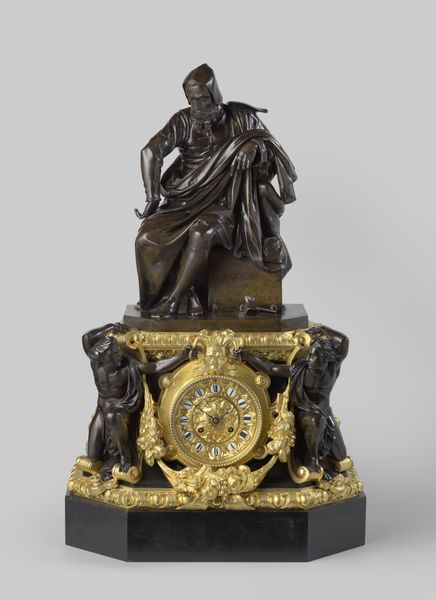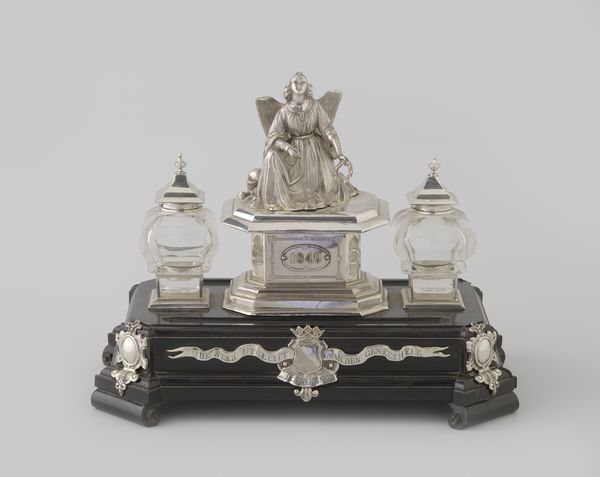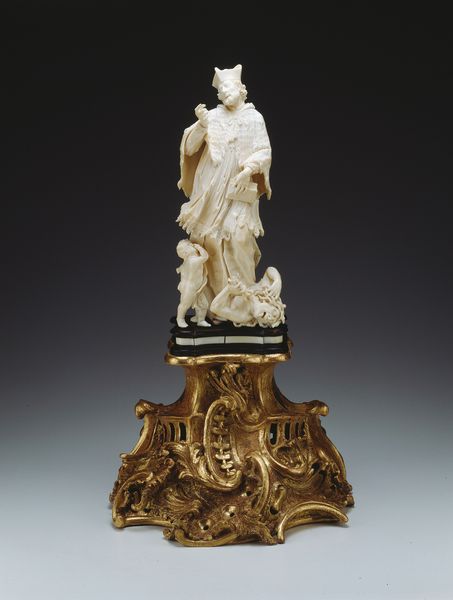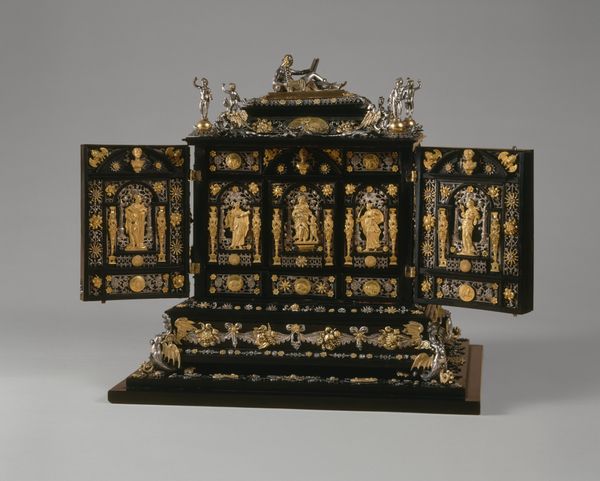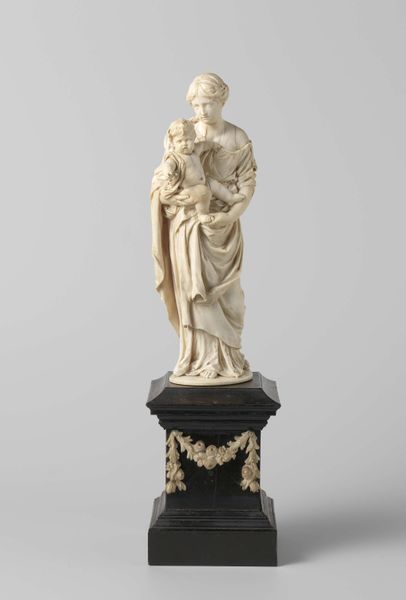
sculpture
#
portrait
#
baroque
#
sculpture
#
sculptural image
#
figuration
#
sculpture
#
decorative-art
Dimensions: Overall (confirmed): 8 1/4 × 9 1/2 × 6 1/4 in. (21 × 24.1 × 15.9 cm)
Copyright: Public Domain
Editor: We’re looking at a sculpture from the early 17th century titled "Automaton Clock in the form of Urania." The artist is listed as Paullus Schiller. It’s made of gilded brass, iron, and other materials and depicts Urania, the muse of astronomy. I’m struck by the contrast between the dark, weighty base and the luminous, golden figure above. What leaps out at you? Curator: Oh, it’s pure celestial whimsy, isn’t it? A golden goddess lounging atop a clock—ticking away our mortal moments while she surveys the cosmos. But look closer: she’s not just pretty, she’s practically an engineer. Clocks weren’t just timekeepers then; they were miniature universes, showcasing humanity’s mastery over nature, or at least the *illusion* of mastery. Notice the numerals on the globe, each turn marking the passage of time. Time, the Renaissance’s greatest obsession. Are we controlling it or is it controlling us, I wonder? Editor: So, it's less about accurate timekeeping and more about… making a statement? Curator: Precisely! This wasn't your average mantel clock. It was a flex! A way to flaunt wealth, learning, and an enlightened worldview. It whispers, “I’ve conquered the stars and measured the infinite!” Okay, maybe it shouts it. Editor: I guess you’re right, it’s all so…ostentatious. Knowing what it represents changes how I see it, though. It is pretty neat when you realize that the person who commissioned this wanted to project themselves as all-knowing, which is quite amusing when looking back at this from today. Curator: Isn’t it though? And think about Urania herself, frozen in eternal observation. Are we looking at her, or is she judging our puny attempts to understand the universe? Gives you chills, doesn’t it? Editor: It does! Now, looking at it I wonder if it represents an optimistic time when it seemed as though humanity could "conquer the stars," a sort of scientific triumph, maybe like our modern obsession with computers? Thanks so much, that's definitely given me a new perspective.
Comments
No comments
Be the first to comment and join the conversation on the ultimate creative platform.
